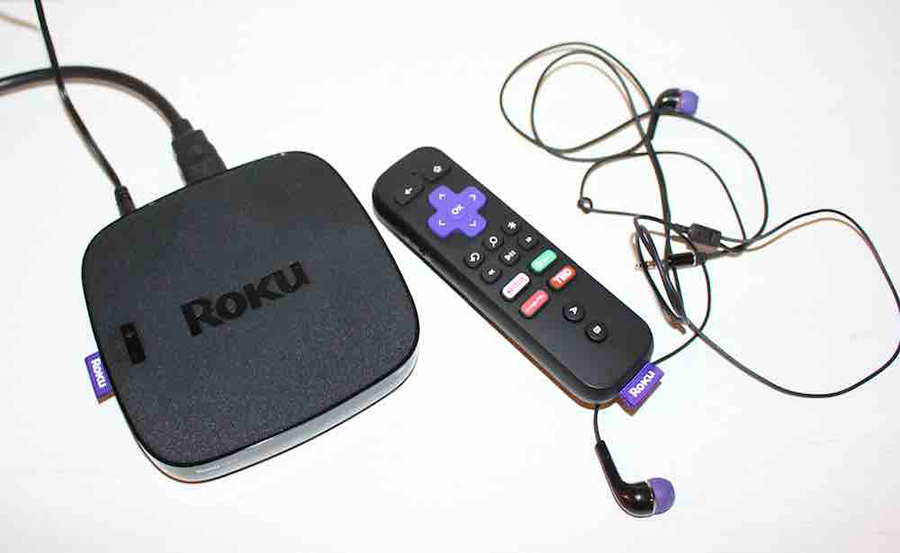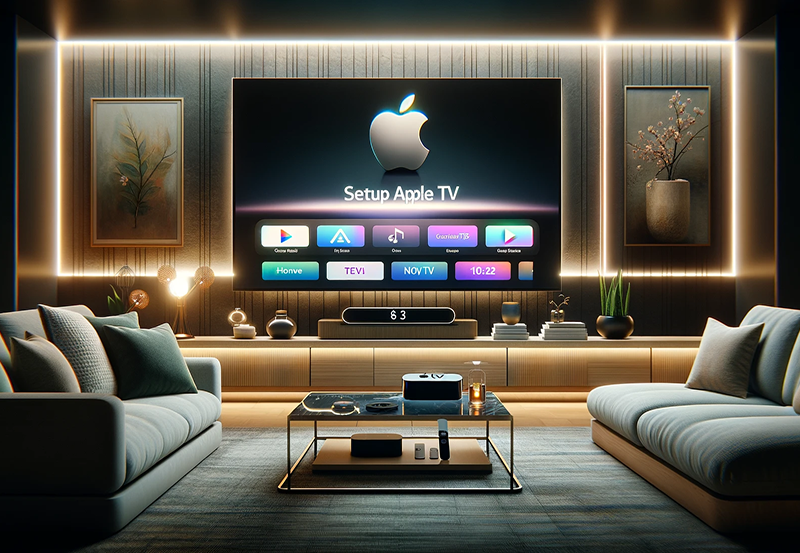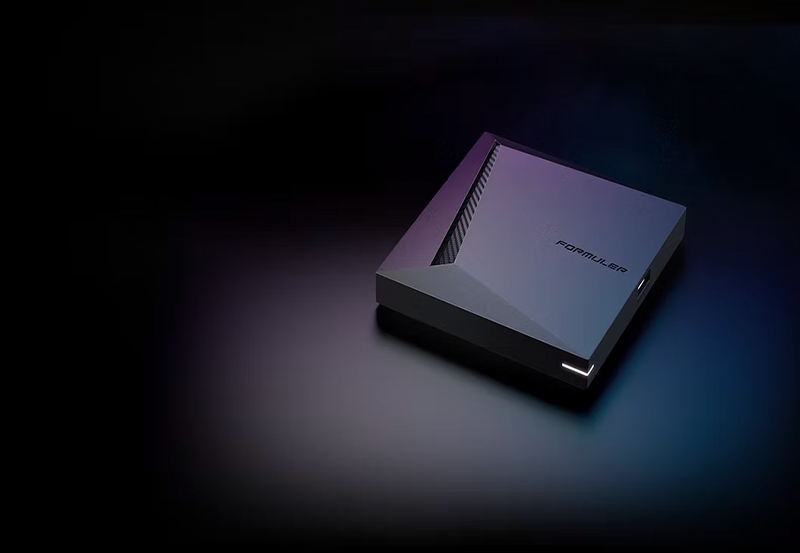In the ever-evolving world of entertainment, the eternal debate persists: Roku IPTV vs. Traditional Cable. As audiences look for the best way to access their favorite content, understanding the strengths and limitations of each option is crucial. For many, the allure of new technology buzzes with potential, while others cling to the familiar territory of cable television. Whether you’re a tech-savvy viewer or someone who just wants straightforward access to a broad array of channels, this guide will illuminate the path for your viewing pleasure.
The Rise of Streaming Services and IPTV
Streaming services have revolutionized the way we consume media. With the internet becoming a central hub for all kinds of data, television and movies have naturally made their way to online platforms. Among these platforms, IPTV on devices like Roku has gained significant traction, offering an alternative to the traditional cable experience. But what exactly is IPTV, and how does it reshape how we view media?
Understanding IPTV
IPTV, or Internet Protocol Television, is a system where television services are delivered using the Internet protocol suite over a packet-switched network like a LAN or the internet, as opposed to being delivered through traditional terrestrial, satellite signal, or cable television formats. This delivery model opens up various possibilities for both live stream options and on-demand services.
Streaming Tip:
Upgrade your game day experience with IPTV Sports for live and on-demand coverage of all major leagues.
Features of IPTV
IPTV comes with a variety of features that cater to modern audiences. Whether you are looking to catch up on the latest movies or your favorite TV series, IPTV offers a flexible access point:
- On-Demand Viewing: Users can access a library of shows and movies to watch whenever they like.
- Live Streaming: Many IPTV services provide live feeds similar to traditional broadcast channels.
- Interactive TV: Some IPTV platforms offer interactive features that allow you to engage with the content in real time.
Benefits of Roku for IPTV
Roku, as a prominent player in the digital media streamer market, heightens the IPTV experience by providing a user-friendly interface and a myriad of channel options. Here’s why it stands out:
- Easy Navigation: Roku’s intuitive interface makes finding and accessing IPTV channels simple.
- Top IPTV Subscriptions: Roku supports a variety of top IPTV subscriptions, enhancing content diversity.
- Affordable Access: Typically, Roku devices are cost-effective, providing excellent value for the IPTV enthusiast.
Traditional Cable – Tried and True
Despite the buzz around IPTV, traditional cable TV remains steadfast in the market. Many households continue to rely on cable services due to their simplicity and established trust. With decades of operation, cable providers have structured packages that cater to different viewing needs.
The Appeal of Cable TV
Cable TV offers a straightforward viewing experience that does not depend on internet connection quality, making it a reliable choice for many. From robust channel lineups to premium network options, cable TV delivers an established video service.
Features of Cable TV
Cable TV’s offerings include:
- Reliable Broadcast Quality: With coverage not dependent on internet bandwidth, cable maintains stable picture and sound quality.
- Wide Range of Channels: Typically, cable packages include local, national, and international channels.
- Bundled Packages: Often comes with options to bundle internet and phone services.
Why Some Choose Cable
For traditionalists, cable TV provides a sense of reliability and uniform access which isn’t reliant on technical savvy or robust internet infrastructure:
- Convenience: One-time installation with minimal system interference post initial setup.
- Premium Channels: Access to exclusive content not always available on streaming services.
- Ease of Use: Familiar interfaces and straightforward use without requiring frequent updates or troubleshooting steps.
Comparing IPTV on Roku and Traditional Cable
The choice between IPTV via Roku and traditional cable isn’t necessarily clear-cut. Each has strengths and gaps that reflect different viewing habits and preferences. When deciding, evaluating your viewing style, budget, and technological comfort is important.
Availability and Flexibility
One significant advantage of IPTV on Roku is its flexibility. Viewers can watch content at their convenience without being tied to broadcast schedules. Roku allows you to choose what to watch and when to watch it, often at a lower cost than cable. Meanwhile, cable provides a more static viewing schedule, but with the merit of dependability and ease of access to live broadcast events.
Cost-Effectiveness
Traditional cable often comes with higher monthly fees due to bundling and infrastructure costs, while IPTV services supported by Roku provide a more budget-friendly alternative. For consumers looking to cut down on expenses without sacrificing content access, Roku’s platform with its array of free and premium IPTV options is appealing.
Content Variety and Exclusive Access
IPTV on Roku’s major strength lies in expansive content libraries, especially for niche genres and international programming. This contrasts with cable’s model of exclusive premium offerings, which include specialized sports or movie channels often not found on streaming platforms without additional subscriptions.
Technical Considerations
IPTV’s performance is heavily dependent on internet speed and quality, whereas traditional cable is less susceptible to these variances. Additionally, IPTV may require more tech-savvy to troubleshoot issues, whereas cable provides straightforward plug-and-play with dedicated technical support services for issues.
Future Trends in Television Viewing
As technology continues to evolve, so too will the habits of viewers worldwide. The trend towards IPTV and streaming is anticipated to grow, thanks to advancements in internet technology and a cultural shift towards on-demand content. How will this affect your everyday viewing choices, and what innovations should you anticipate in the coming years?
Internet Speed and Accessibility
Faster internet speeds will remove more barriers currently faced by IPTV services, leading to higher quality streams and fewer interruptions. Conversely, traditional cable providers are expected to innovate their offerings to keep pace with cutting-edge streaming models.
Content Customization and Personalization
A major growing trend is the personalization of content. IPTV on platforms like Roku is likely to capitalize on this by allowing users to tailor their viewing experience to individual preferences and past behavior insights. Cable is beginning to implement similar features but may lag behind due to its more rigid infrastructure.
Technological Innovations
As technology advances, the line between IPTV and traditional cable might blur, with cable services adopting more internet-based delivery and IPTV providers enhancing features traditional users appreciate. Innovations like virtual reality and augmented reality might further disrupt both traditional and streaming landscapes.
Your Viewing Choice – What Matters Most?
Deciding between IPTV on Roku and traditional cable comes down to personal priorities. Whether you seek the flexibility and affordability of IPTV or the reliability and familiarity of cable, understanding these mediums’ nuances will guide you to the optimal choice for your lifestyle and entertainment preference. Remember, each has its place depending on your situation and needs.
Evaluate Your Needs
Think about your typical viewing habits. Do you like the freedom to watch at differing times, or do you prefer the flow of scheduled programming? How important are international channels to you? Do you need a user interface that is straightforward and easy to navigate?
Consider Your Budget
Analyze your budget realistically. Are you looking to cut costs, or do you value the full spectrum of services, no matter the price? Does bundling additional services make more financial sense for you?
Technological Comfort Level
Assess how comfortable you are with technology. IPTV on Roku requires some understanding of internet procedures and settings, which might not appeal to everyone, whereas traditional cable requires minimal tech knowledge beyond setup.
Frequently Asked Questions

What is the main advantage of Roku IPTV over cable?
Roku IPTV offers greater flexibility and often at a lower cost than traditional cable. It allows for on-demand viewing, internet-based content, and personalized options that traditional cable doesn’t usually provide.
Is the picture quality the same between Roku IPTV and cable?
It varies. IPTV picture quality depends on internet speed and stability, while cable provides a consistent broadcast signal. Both have options for high-definition quality when conditions are optimal.
Can I have both IPTV and traditional cable?
Yes, many users choose to have both, taking advantage of the flexibility of IPTV’s offerings while keeping the traditional cable safety net for local sports events, news, or channels.
Are there any security concerns with IPTV?
As with any internet-based service, IPTV can be susceptible to network vulnerabilities if not properly secured. Using reputable services and keeping your router secure helps mitigate risks.
How do I switch from cable to Roku IPTV?
Switching involves selecting a top IPTV subscription compatible with Roku, ensuring a strong internet connection, and setting up your Roku device according to the provider’s guidelines.
Do all IPTVs work on Roku?
Not every IPTV service is compatible. However, Roku supports many top-tier subscriptions, allowing users to enjoy the best IPTV for streaming movies and other content with ease.
Is an internet connection always needed for IPTV?
Yes, IPTV services require an active internet connection to deliver content, unlike traditional cable which relies on a separate signal transmission system.
How to Use an Android Box: Tips for First-Time Users





